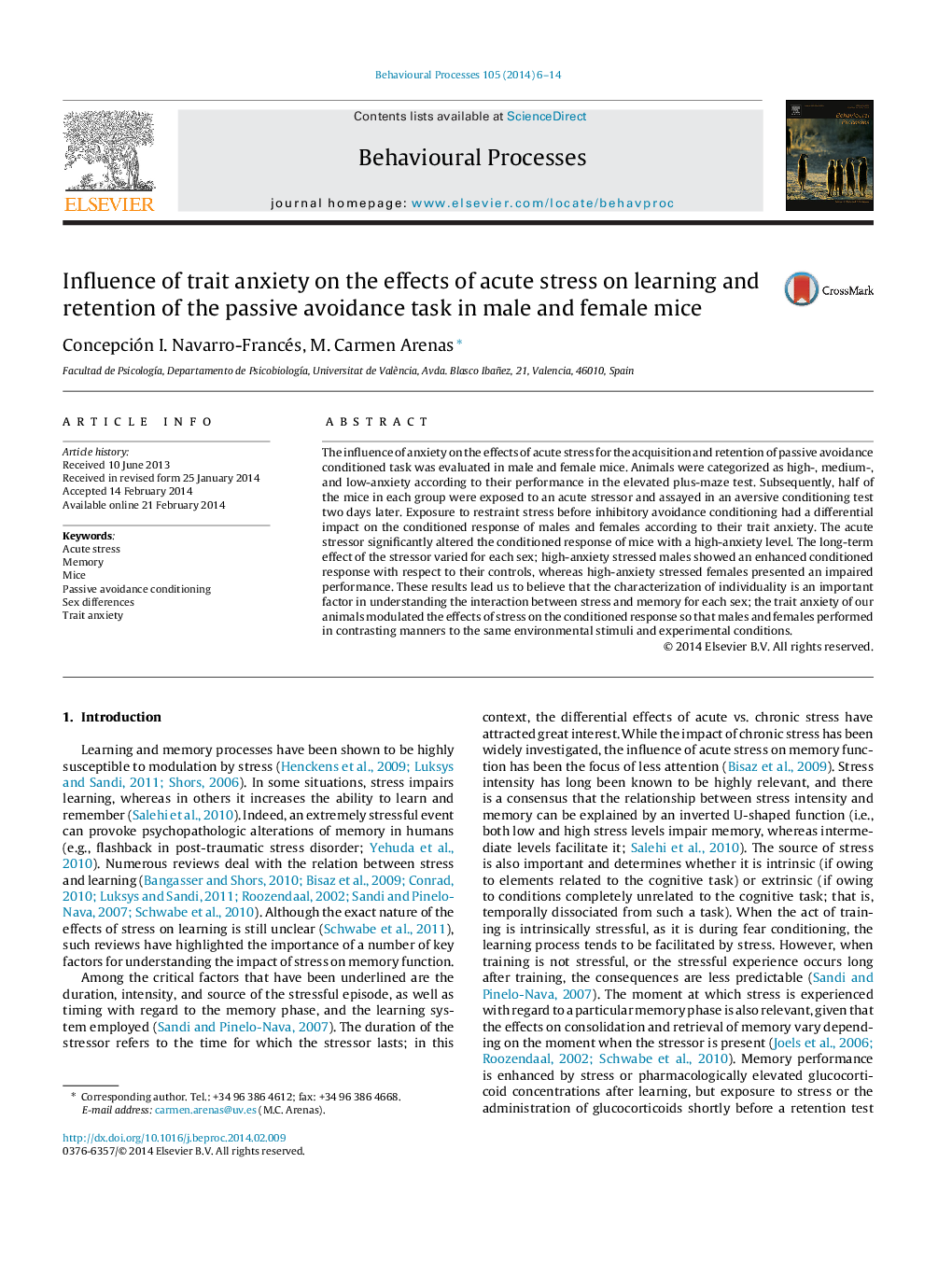| Article ID | Journal | Published Year | Pages | File Type |
|---|---|---|---|---|
| 2426734 | Behavioural Processes | 2014 | 9 Pages |
•The role of anxiety in the long-term effects of acute stress on memory was evaluated.•Stress altered the passive avoidance response only in high-anxiety mice.•Stress enhanced the conditioned response of high-anxiety males.•Stress led to deterioration in the conditioned response of high-anxiety females.
The influence of anxiety on the effects of acute stress for the acquisition and retention of passive avoidance conditioned task was evaluated in male and female mice. Animals were categorized as high-, medium-, and low-anxiety according to their performance in the elevated plus-maze test. Subsequently, half of the mice in each group were exposed to an acute stressor and assayed in an aversive conditioning test two days later. Exposure to restraint stress before inhibitory avoidance conditioning had a differential impact on the conditioned response of males and females according to their trait anxiety. The acute stressor significantly altered the conditioned response of mice with a high-anxiety level. The long-term effect of the stressor varied for each sex; high-anxiety stressed males showed an enhanced conditioned response with respect to their controls, whereas high-anxiety stressed females presented an impaired performance. These results lead us to believe that the characterization of individuality is an important factor in understanding the interaction between stress and memory for each sex; the trait anxiety of our animals modulated the effects of stress on the conditioned response so that males and females performed in contrasting manners to the same environmental stimuli and experimental conditions.
